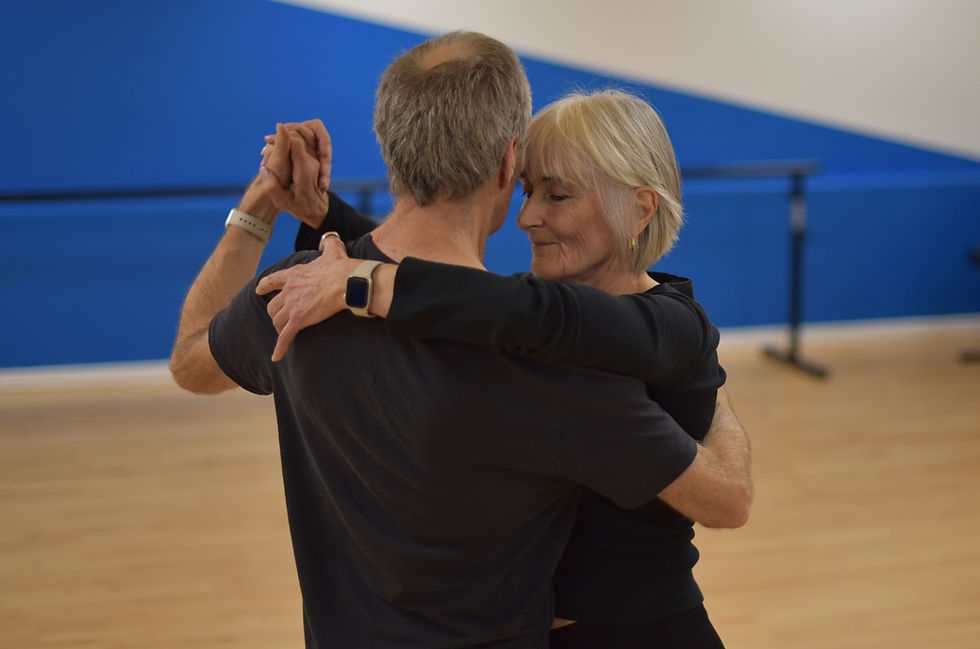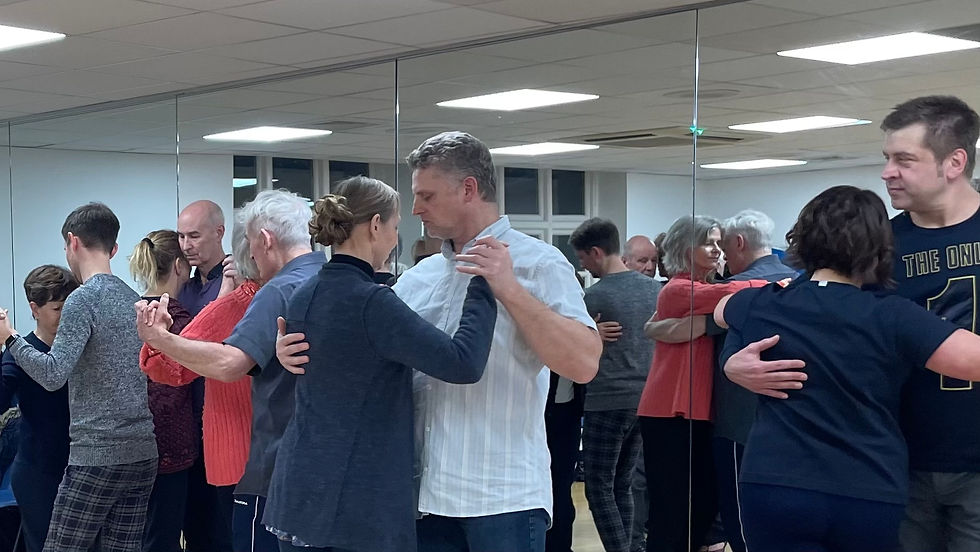The Question of Feedback - some thoughts from a follower's point of view
- tangoadmin4
- Feb 4, 2025
- 4 min read
Updated: Feb 7, 2025
I’m asked to dance by someone I don’t know. The embrace is uncomfortable and he resists when I try to adjust my position. The embrace shuts down the closed side. His head locks against mine. He leads a move but doesn’t lead the return and I’m left to find my own way back through a door that remains closed. He tries a leg displacement when both my legs are weighted. ( Ouch! ) He repeats moves that aren’t working…
As followers we’ve all had experiences like this, finding ourselves in the middle of a tanda with a leader making things uncomfortable for us, and possibly even hazardous. It’s a difficult situation. You can’t start a discussion on the milonga floor. If things are really bad, it's possible to say "thank you!" and leave the floor - though for many of us this act of self-preservation goes against everything we’ve been taught; women in particular are thoroughly trained to be polite and forbearing, rather than forthright and well-boundaried (but that's a topic for another post). All too often, we tough out the dance and turn our discomfort inward, assuming it must be our fault, or blaming ourselves for not asserting our needs.
But it is important to do something. After years of dancing and teaching I've come to feel strongly about the value of what followers bring to the floor - a great follower has cultivated their own presence in the partnership of the dance, honed their technique, and has strength and integrity in their own axis. This presence and integrity is not passive - it's active and free to partake in the decisions that make up the dance. And so, just as you grow strong in your core, your legs and your knowledge of tango I strongly encourage followers to explore where and when they can give (and receive!) feedback.
So what opportunities are there for us to hone this skill? Lessons are an obvious place to seek feedback and support, but you can also develop you level of comfort and skill with giving feedback at a practica (an open practice session that any dancer can attend), or, once off the floor, at a milonga (a social dance).
At the Practica
The whole point of a practica is to explore and improve and all dancers should seize the opportunity to speak up if something isn’t working for them. If you're not sure how to approach this, here's a steer:
Revisit the basics: is the connection good for you both and how is the walk feeling?
Ask to look at something specific - can we look at this turn/sacada/leg wrap, and try to improve things?
Slow things down.
Take the move apart. Look for the point where things start to go wrong.
Be analytical of the lead and follow.
Ask yourself if you can feel the lead. Is the leader waiting for you to respond? Or is he hurrying ahead?
Working in this way everyone benefits. The leader and follower improve and both have a better time of things.
At the Milonga
Once you’re off the floor, it’s perfectly ok - if it's someone you know well - to ask leaders if they mind you giving some feedback. Most people won’t object. Rather than try to explain they’re doing something wrong, it’s best to start out by saying how what they are doing affects you. ‘When you do x I find it harder to stay on my axis/difficult to pivot/maintain a connection…’ The idea is to open a dialogue rather than deliver a critical report. There was a point where we both got a bit lost, I wasn't sure what you wanted me to do? The outcome of the dialogue is unpredictable, but it at least gives you the opportunity to be heard.
A final thought - checking in with yourself
It’s worth saying that if something isn’t working it isn’t always the leader’s fault. Sometimes we add to the problems ourselves! This might be because of a lack of technique on our part. But there may be another reason : it’s easy to be so anxious about what is coming next in the dance that we aren’t present in the moment. We are so keen to 'get it right' that we are no longer connected to the sense of ourself now. We need to remember that once we’ve done everything we can to play our part, having confidence in our technique is an important part of the follower’s skill set. There will inevitably be times when our ability won’t be enough to guarantee a pleasant dance. But we should value these hard-won skills and encourage our leaders to do the same.
Feedback has an important part to play in this. Sometimes people want different things from their tango and as a result may reject your input entirely. In that case all you can do is accept it and move on. In the end we can only take responsibility for our own dancing, but - hey, it's 2025 - we shouldn’t be afraid to encourage leaders to take responsibility for theirs.











Comments